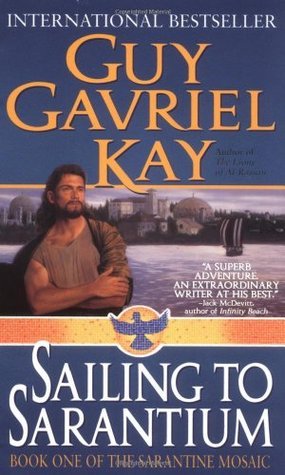What do you think?
Rate this book


546 pages, Paperback
First published September 7, 1998
“He wanted to achieve something of surpassing beauty that would last. A creation that would mean that he--the mosaic worker Caius Crispus of Varena--had been born, and lived a life, and had come to understand a portion of the nature of the world, of what ran through and beneath the deeds of women and men in their souls and in the beauty and the pain of their short living beneath the sun.”





